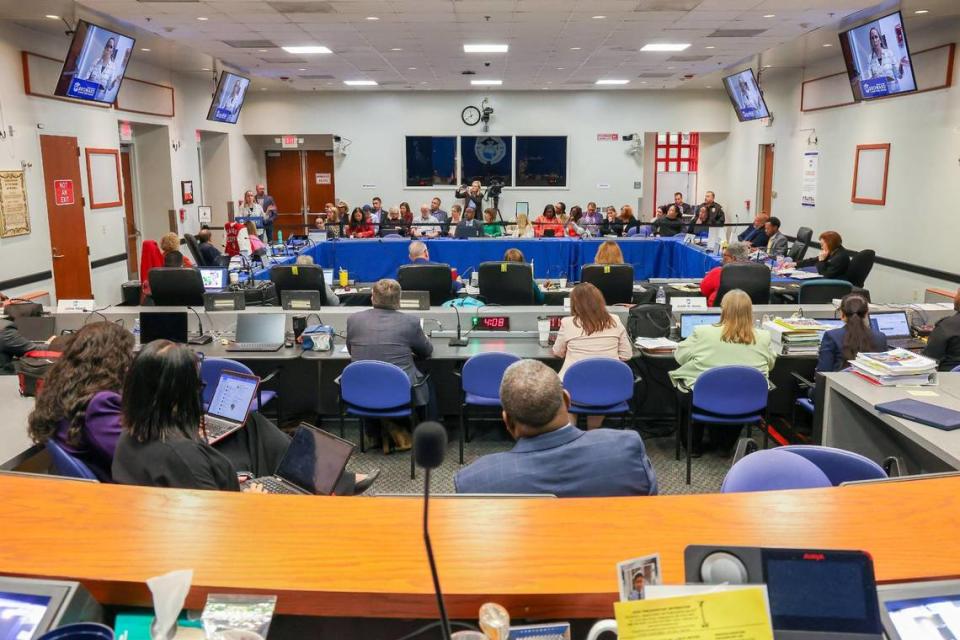Broward public schools approved a total ban on cellphone use. How will that work?
Broward parents can expect to be calling the office at their children’s schools a lot more this year. School board members voted unanimously to adopt their own district-wide rules to expand the state law banning cell phone usage in classrooms at Tuesday’s meeting.
The current state statute, passed in May 2023, prohibits students from using cell phones during instruction time unless given permission by their teachers and requires schools to limit access to social media during school hours and provide instruction to students on the social, emotional and physical effects of social media. But in Broward, the board now wants to eliminate students’ access to cellphones during their free time, like lunch and between classes.
Here’s how the Broward school district plans to implement their policy to ban cellphone use during the upcoming school year.
Broward’s new cell phone policy
The new rules will prevent Broward students from using their cellphones from the first bell of the day to the last bell signaling the school day is over.
Students will have to either turn their cellphones off or place them on airplane mode which blocks incoming calls, texts and notifications.
“If it’s on airplane mode and there’s an emergency, a student would be able to quickly power the phone back up to reach out to someone,” said Debra Hixon, the school board vice chair. One of the main criticisms of cellphone bans in schools is their utility in case of an emergency.
Earbuds and Bluetooth devices will also be completely prohibited during the school day.
Hixon said she spoke to superintendent Howard Hepburn before the Tuesday board vote and he said the district will get a work group of principals together to discuss the best way to implement the policy further in schools.
John Sullivan, the public information officer for Broward Schools, said there may be a small percentage of teachers who may want to confiscate cellphones at the beginning of classroom periods, which would be within their rights.
“It’s in our policy only because the state statute is dictating that the teacher has the authority to designate that spot,” he said.
Teachers could also allow students to use their phones for educational purposes such as Kahoot, an online learning game.
Board member Allen Zeman, who proposed the ban, said he’s looking forward to cellphones becoming “an every-once-in-a-while device” to enhance learning.
“What we’ve learned is that it really is not a correlate with mental health. It is a cause of low mental health,” Zeman said.
Cellphone bans becoming a national trend
Last year, Orange County School District, which is the fourth-largest in Florida, implemented its own complete ban of cellphone use during school hours. School administrators rode around in golf carts during lunch periods confiscating phones from students who violated district policy, according to the New York Times.
The Los Angeles Unified School District recently became the largest school district in the country to approve a ban on cellphone and social media usage during the school day. District superintendent Alberto M. Carvalho, who previously was the superintendent for Miami-Dade schools, pointed out that “when coupled with social media, phones are a harmful vehicle that negatively impacts young people.”
Indiana and Ohio recently joined Florida in cellphones bans or restrictions in schools across the state.
Other states such as Oklahoma, Washington, Kansas, Vermont and Connecticut have considered cellphone bans.


